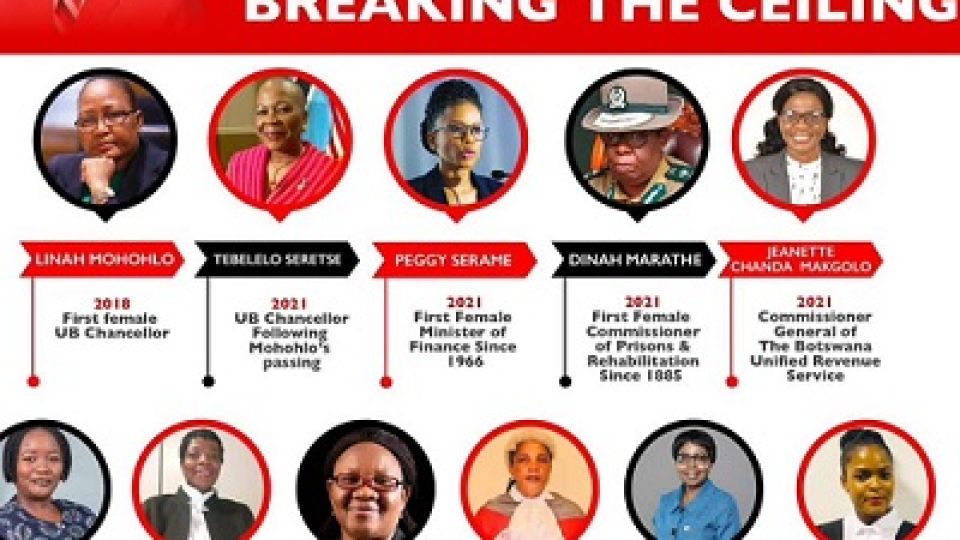from ODIRILE TOTENG in Gaborone, Botswana
Botswana Bureau
GABORONE, (CAJ News) – BOTSWANA is making efforts to catch up with fellow Southern African Development Community (SADC) member states in promoting women quota systems in public offices.
President Mokgweetsi Masisi said his government would fight stereotypes that have for years deprived local women of equal opportunities.
“Since 2018, my government has been breaking down barriers and shattering gender stereotypes as seen by the strategic rise in the number of women in leadership and decision-making positions,” Masisi said.
He added, “We remain firm and committed to achieving gender equality in development, sustainable peace, and good governance.”
“This is something my government and I are proud of and committed to, honouring the courage, strength, and resilience of all Batswana women,” Masisi said.
The president praised Batswana women that were tipping the scales locally and abroad.
Masisi insisted the government was on a quest to do more in terms of uplifting and empowering the girl-child and women overall.
“We remain committed to closing the gender gap; by increasing women’s representation in leadership and decision-making positions. I am very proud of the progress we have made as a government,” he stated.
Following the 2019 general elections, Masisi’s ruling Botswana Democratic Party (BDP) nominated four women as specially elected/nominated Members of Parliament (SEMPs) of the six available positions.
This has continued with key appointments of senior civil servants.
“A lot can and will still be done especially around empowering young women to grow into leadership positions. This is a commitment we made as the BDP, a commitment we are indebted to. I am also very happy to see the recent private-sector appointments of women in leadership, I congratulate them,” Masisis said.
Among the Botswana women occupying top government positions following Masisi’s presidential election victory comprise Linah Mohohlo (first female chancellor for University of Botswana in 2018), Tebelelo Seretse (2021 University of Botswana Chancellor following the death of Mohohlo in 2021), Peggy Serame (first female finance minister in 2021 since 1966), Dinah Marate (first female commissioner for Prisons and Rehabilitation since 1885) and Jeanette Chanda Makgolo (Commissioner General of the Botswana Unified Revenue Service since 2021).
Others include Chilesile Malele (first female CEO of the Botswana Railways), Nomsa Moatswi (first female Director of Public Prosecutions), Emma Peloetletse (first female permanent secretary to the president), Tebogo Tau (first female president of the Court of Appeal), Matshidiso Bokole (first female deputy permanent secretary to the president) and Sephatisiwe Girly Daniel (Youngest Member of the Constitutional Review Committee).
Analysts commented on the progress made in appointing women to key positions.
“Efforts to increase the number of Botswana women in political leadership positions is applaudable considering that right now Botswana – in SADC has the lowest number of female representatives in Parliament, 66 years after attaining independence,” said Oliver Mhuriro.
Mag Madibela said, “Let’s change the trajectory in political leadership. It is time for 50 percent representation of women in Parliament and Cabinet in Botswana. We can do this.”
Elias Bale said having made progress, focus should now be addressing high levels of unemployment among youth.
Rudolph Mandawu advised the government to focus on the Ministry of Education and Skills Development.
“Many graduates are holding certificates that are not recognized by professional regulation bodies but the government spends a lot sponsoring students’ unrecognized courses,” Mandawu said.
– CAJ News

